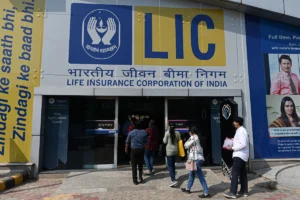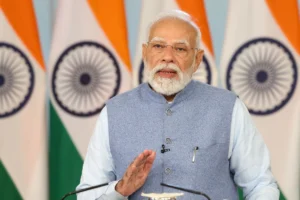
The Adani Group, one of India’s largest and most diversified business conglomerates, has seen a phenomenal rise in its market capitalization in the first week of December 2023. The group’s market cap soared to ₹15.14 lakh crore on Thursday, December 7, a seven-month high. On Friday’s close, the group’s market cap stood at ₹11.02 lakh crore. This means that the group added nearly ₹4.12 lakh crore to its value in just 4 days.
What are the reasons behind this remarkable surge in the group’s market value?
Here are what I believe are four possible factors that may have contributed to the bullish sentiment around the Adani stocks:
A possible end to Political witch-hunt:
The recent state elections in Madhya Pradesh, Chhattisgarh, and Rajasthan have boosted the confidence of the investors in the group’s future prospects. The BJP secured a large majority in these states, defeating the Congress Party and its leader Rahul Gandhi. The Congress Party and Gandhi had made attacking Gautam Adani and his conglomerate the central plank of their election campaigns. They had accused Adani of having a close relationship with Prime Minister Modi and benefiting from his policies.
However, the public rejected these allegations and voted for the BJP. Analysts believe that this shows the public’s trust in Modi and his government. They also think that this will reduce the pressure on Adani and his group from the opposition parties and the media organisations funded by foreign elements. As a result, the investors expect Adani to expand his business and increase his profits in the future.
In contrast, had the Congress Party done well in the state elections, the situation would have been different. The Congress Party leaders would have intensified their criticism of Adani and his group. They would have also tried to portray the election results as an endorsement of their claims of corruption and favoritism in the Modi government. This would have created a negative image of Adani and his group in the public’s mind. This would have also affected the investor’s confidence and the group’s performance
BJP victory heralds political stability:
The BJP is known for its pro-business and pro-development policies, which could create a favourable environment for the group’s growth and expansion. The BJP has been promoting various initiatives and reforms to attract more investment, improve infrastructure, and ease the regulatory burden on the private sector. Some of the examples of these policies are the Make in India campaign, the Goods and Services Tax (GST), and the Insolvency and Bankruptcy Code (IBC). These policies have benefitted the industry by creating more opportunities, reducing costs, and enhancing efficiency. The BJP has also been supportive of the energy and infrastructure sectors, in which the Adani Group has substantial investments. Modi Government’s pro-industry and pro-growth policies could enable the group to achieve its vision and goals in the domestic and international markets.
Acquisitions and expansions:
The Adani Group has been on an acquisition spree in the past few months, snapping up assets in various sectors, such as cement, airports, power, and renewable energy. The group recently acquired ACC and Ambuja Cements, two of India’s leading cement companies, for ₹85,000 crore and has planned to produce 60% cement using renewables by 2028. This acquisition will give the group a strong foothold in the cement industry.
In addition to operating seven airports in India, Adani is building a greenfield airport in Navi Mumbai at an investment of ₹8625 crore. This acquisition will make the group the largest airport operator in India, with a combined annual passenger capacity of over 300 million.
In the Port sector, Adani has acquired this year such as Haifa Port in Israel, Colombo Western Terminal in Sri Lanka and Karaikal Port in Tamil Nadu. The group is also developing India’s deep seaport in Vizhinjam, Kerala aspiring to be India’s transhipment hub.
The group also announced plans to invest ₹50,000 crore in renewable energy projects in Gujarat. This investment will help the group achieve its target of becoming the world’s largest renewable energy company by 2030, with a generation capacity of 50 GW. The group has also planned to invest ₹4.15 lakh crores in Green Hydrogen production to reduce India’s dependency on oil.
Likewise, Adani has started its new ventures to diversify its business portfolio from a port-to-power conglomerate to a port-to-tech conglomerate.
Performance and ratings:
The Adani Group has delivered strong financial results in recent quarters, despite the challenges posed by the Covid-19 pandemic. The group’s consolidated revenue for the quarter ended September 2023 grew by 41% year-on-year to ₹48,894 crore, while its consolidated EBITDA rose by 49% to ₹12,887 crore. The group’s credit ratings have also improved, with Moody’s upgrading the ratings of Adani Ports and Adani Green Energy, and Fitch affirming the ratings of Adani Energy Solutions and Adani Total Gas. These ratings reflect the group’s robust business model, diversified revenue streams, and strong cash flow generation.
The Adani Group’s market cap has grown by more than 11 times since the beginning of 2020, making it one of the most valuable and diversified business groups in India. The group’s founder and chairman, Gautam Adani, is now the second-richest person in Asia, with a net worth of ₹7.15 Lakh Crore ($86.2 billion), according to the Bloomberg Billionaires Index. The group’s ambitious vision and aggressive expansion strategy have made it a force to reckon with in the Indian and global markets.
The group has also demonstrated its commitment to social responsibility and environmental sustainability, by supporting various initiatives such as the Adani Foundation, the Adani Institute of Infrastructure Management, and the Adani Solar Park. The group aims to create a positive impact on society and the planet while creating value for its stakeholders.























